DIY Citrus Cleaner – Therapeutic and Household uses of Orange, Grapefruit, and Lemon Peels.
Learn how to make your own citrus cleaner using the peels from any citrus. The citrus cleaner is antiseptic, anti-fungal, antibacterial, and neutralizes odours. Don’t throw away your peels, make your own cleaning solution instead! Zero waste will save you money and make your home smell great!
Citrus fruit is very beneficial for cleansing the body, especially after a long winter. The fruit and juice are tonic and cleansing. It cleanses and supports the liver, and lymphatic system. It is antibacterial, anti-fungal, antiseptic, and detoxifying. It is astringent and relaxes the central nervous system. Citrus fruit, especially lemons and grapefruit, are a good addition to your diet if you are trying to lose weight, too. But if your family eats a lot of lemons, grapefruit, or oranges there are a lot of citrus peels heading for the homestead compost bin. Don’t compost those citrus peels! At least not yet. There are several household uses for them, as well as therapeutic uses — so read this before you waste those rich homestead resources.
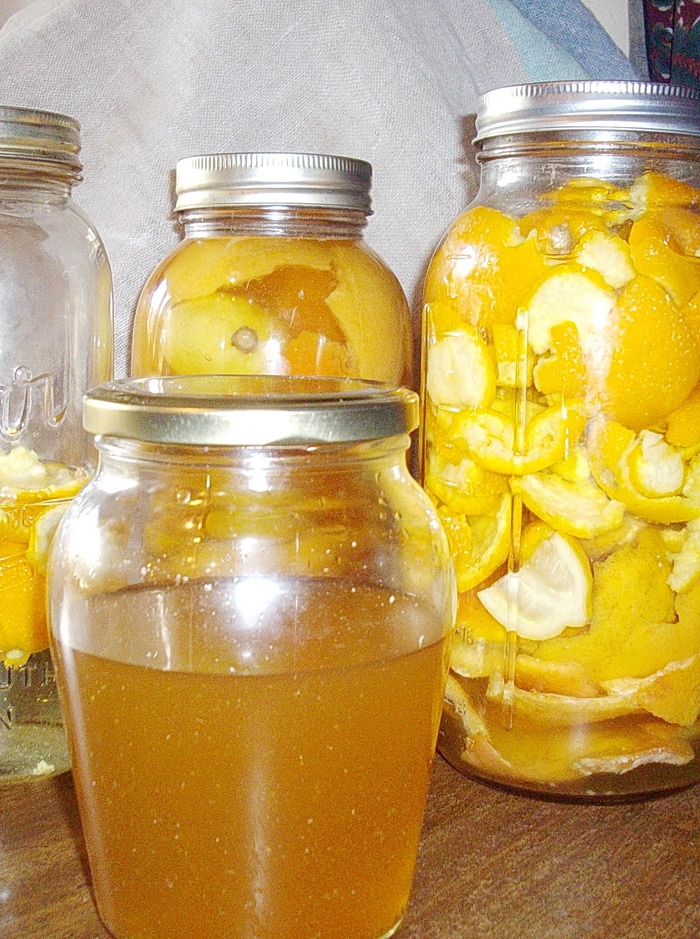
All-purpose Citrus Cleaner – the Citrus solution
There is a super simple method for making orange oil, all-purpose cleaner, making the rounds on Pinterest and in the blogging sphere. It’s the perfect time because oranges, lemons, limes, and grapefruit are in season right now. I first saw it on Pinterest and then several bloggers that I follow posted blog posts about it. So this is not my idea, but I’m weighing in my opinion because it’s just amazing, and if you have orange peels (or lemon or grapefruit or lime) you need to do this. I hope this article adds to the conversation and broadens your view of what is possible, to make full use of this often wasted resource.
It doesn’t matter whether you use organic oranges or conventionally grown oranges for this recipe, although if you use conventional oranges there will be pesticide and fungicide residues in your cleaner — so you decide how pure you want it. This works with grapefruit peels, lemon halves, that you’ve squeezed the juice out of, or any other citrus peel. You can include the seeds, the pith, and the peel. This citrus cleaner is safe to use on finished wood, as well as countertops, bathroom fixtures, and floors. It is citrus oil-based and once it’s finished it has an oily feel to it. It smells like the fruit that you put in it, and it doesn’t smell like vinegar. While white vinegar has a pH of 2, once the citrus cleaner is ready to use its pH has risen to 3 or 4, and will only be mildly acidic.
A citrus cleaner is antiseptic, anti-fungal, antibacterial, and neutralizes odours.
Other citrus fruits that you may have access to, depending on where you live: Seville bitter orange (Its flowers are used to make Neroli E.O.) and Bergamot (another bitter orange). Both are strongly scented and their oils have strong therapeutic benefits.
To use it you dilute it 1:1 with water. Put it in a spray bottle and spritz the area that you want to disinfect or clean. Wipe it off. It both cleans and disinfects. It smells wonderful, too. Are you ready to get started?
What you need to make citrus cleaner:
Citrus peels, lots of them (you can use lemon, orange, grapefruit or any mixture that you have)
White vinegar
A big glass jar (not plastic)
Lid for the jar
How to make your citrus cleaner:
I used a 2-quart wide-mouth jar, but if you don’t have one, use what you have. Don’t use plastic. The vinegar will leach chemicals like BPA out of the plastic. Glass is stable.
As you eat or use citrus fruit during the season, put the peels into your glass jar. Cover with vinegar. The peels will float, but that’s all right. Once the jar is filled with peels, and the vinegar is topped up in the jar, the citrus peels will be submerged. Keep a lid on the jar, when you are not filling it, to keep the vinegar fumes down. It smells pretty strongly of vinegar when you start. The vinegar smell dissipates after 2 or 3 weeks. That’s how you know your cleaner is ready. Every couple of days, give the jar an easy shake to move the peels and vinegar around.
The vinegar leaches the citrus oil out of the peels. The process speeds up if the vinegar is warm, so I keep mine in a sunny window so that the vinegar is warmed by the sun periodically. After 3 weeks or however long it takes in your environment for the liquid to be mostly citrus smelling and without any vinegar smell, you strain it, and squeeze the liquid out of the peels. Squeeze as much liquid as possible. You may want to use a make-shift press of some kind to get the most juice out, as possible. You can strain it again before you bottle if it seems too cloudy to you. You will get some pith, with this method, but that can be strained out the second time around. Then you can compost the peels. 1 quart of citrus peels and vinegar yields only 2 cups of citrus cleaner, so you’ll want to have several jars on your window sill working their magic, while the citrus is in season.
Your liquid citrus cleaner will now be lightly coloured and lightly scented. It will feel thicker and somewhat oily on your hands. Store it in glass jars in a cool, dark place. Citrus oil is light sensitive, so darkness is important if you are making enough cleaner in the citrus season to last a year.
To use mix 1 cup of the citrus solution and 1 cup of water in a spritz bottle. Spray on the surface that you want to clean and wipe off. You can rinse if you want to, or leave the residue to fight bacteria. If you use it on your floors, you’ll want to rinse it afterwards. The oil residue, as light as it is, will attract dirt readily and you’ll have to wash your floors more frequently.
Almost done.
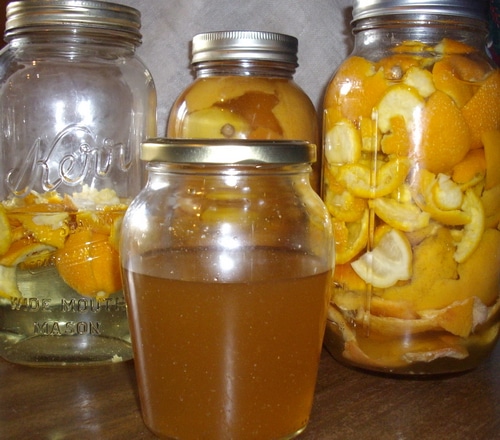
Orange oil or lemon oil furniture or wood polish
Use the citrus solution straight. Don’t dilute it with water but use it as is. It is a potent wood cleaner and furniture polish.
For a more pasty furniture polish, mix a little orange solution or lemon solution in beeswax and jojoba oil — 1 tbsp of each — to get a paste wax consistency. Mix well, while it’s warm. Store in a shallow glass jar. Apply with a soft cloth and wipe off excess with a clean, soft, cloth. Buff to a shine. Try this on your wooden kitchen cupboard doors to remove the daily grime and leave a shine. It protects as well as cleans.
Other household uses for discarded citrus peels:
Lemon halves, that you’ve squeezed the juice from, can be used to clean silver, brass, and marble. Rub a lemon half in some salt and rub it on stained fabric to remove stains. Works especially well on linen. It will also reduce nicotine stains on nails and teeth, and fade freckles. Don’t rub it on a cut, though, it will sting.
Therapeutic use of citrus fruits
Now, what if you want to extract the citrus oil for a therapeutic benefit or internal use? And why would you want to?
Here we will talk only of organically grown fruit. You want to grow these on your own homestead or have a source close to home, or purchase certified organic fruit only. You can buy essential oils of most citrus fruit and they vary in price with lemon oil being the least expensive, and exotic citrus fruit like bergamot being very dear. Most commercially available essential oils, which are extracted from the peels of the fruit are not organic and will contain concentrated amounts of pesticides, and fungicides used on the peels, so caveat emptor.
Method for extracting citrus oil at home for therapeutic use:
For therapeutic use, you can extract the oils from your own citrus fruit through the same method as above, however, use unpasteurized cider vinegar instead of white vinegar, and only use organic fruit. You can use good quality vodka to extract the oils, instead of vinegar. But follow the method for the vinegar, substituting vodka for the vinegar called for in the recipe. Wash the fruit well before placing it in the jars with vinegar. Most store-bought citrus fruit, even organic fruit, has been treated with a fungicide before shipping. You’ll want to wash it off if you plan to use the oil on your body or to drink it.
Benefits of home extracted citrus oils
- Grapefruit and lemon oils extracted in cider vinegar are useful for cleansing and detoxifying your liver and gallbladder.
- They cleanse the lymphatic system.
- All citrus fruit is tonic, antiseptic, anti-fungal, anti-bacterial, and supports the immune system.
How you can use your home extracted citrus oils
You can take a tsp. of this extracted citrus oil in a cup of water or tea for detoxing. Citrus oil can be added to your bath for a refreshing, and uplifting spa experience. It can be added to a carrier oil and used in massage. Lemon, particularly, is known to discourage mosquitoes, from biting, and is a good additive with other E.O.s like tea tree, lemon verbena, and lavender to make a mosquito repellent that works. Use lemon oil in cider vinegar in a hair rinse, after shampooing with Joybilee Farm Chamomile shampoo, to bring out blond highlights in your fair hair.
You can also take the peels and dry them in your dehydrator and then add them to herbal teas as a tonic, immune boosting, and good tasting addition. If you plan to use the peels in baking, however, take the time to remove the white pith from the peel, or you will add bitterness to your sweet dessert.
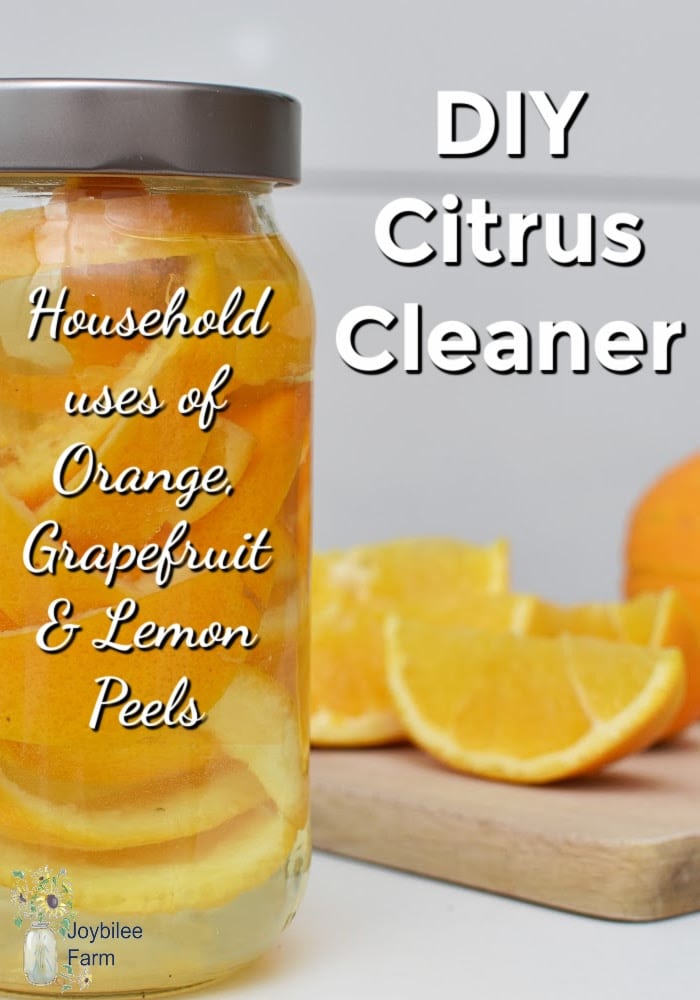
Back to you:
This is not an exhaustive list of beneficial uses of citrus peels. What’s your favourite way to use up citrus peels, after you’ve eaten or juiced the fruit? Or what’s one thing that you’ve taken away from this article that you plan to try? Leave a comment.
Resources:
I used The Compete Family Guide to Natural Home Remedies, edited by Karen Sullivan (1997) for the information about the therapeutic benefits of citrus fruits, in this article.
The Complete Family Guide to Natural Home Remedies: Safe and Effective Treatments for Common Ailments (Complete Guide)
This is one of my favourite herbal references. It includes an extensive chapter on making decoctions, tinctures, balms, and teas to convert herbs into medicines that you can make and use at home. While the book is no longer in print, some new and used editions are still available through Amazon’s extensive network of used booksellers. If you are serious about transitioning to a more responsible, and holistic family medicine paradigm, you want to get a copy of this book, while it is still available.
Grab my Book and start using essential oils to save more money every single day!
The Beginners’ Book of Essential Oils is the answer to the question, “Where do I even start?” Explore your first 10 essential oils and learn to use them with confidence, with over 80 recipes for health, beauty, and cleaning products. Written with the beginner or intermediate essential oil user in mind.
This essential oils guide sifts through the hype and confusion and gives you the knowledge and confidence you need to safely explore 10 foundational essential oils, without needing to spend hundreds of dollars just to begin.
Written by an herbalist not an essential oils marketer, so you can trust that the information is based on real botanical research and experience and not marketing hype.


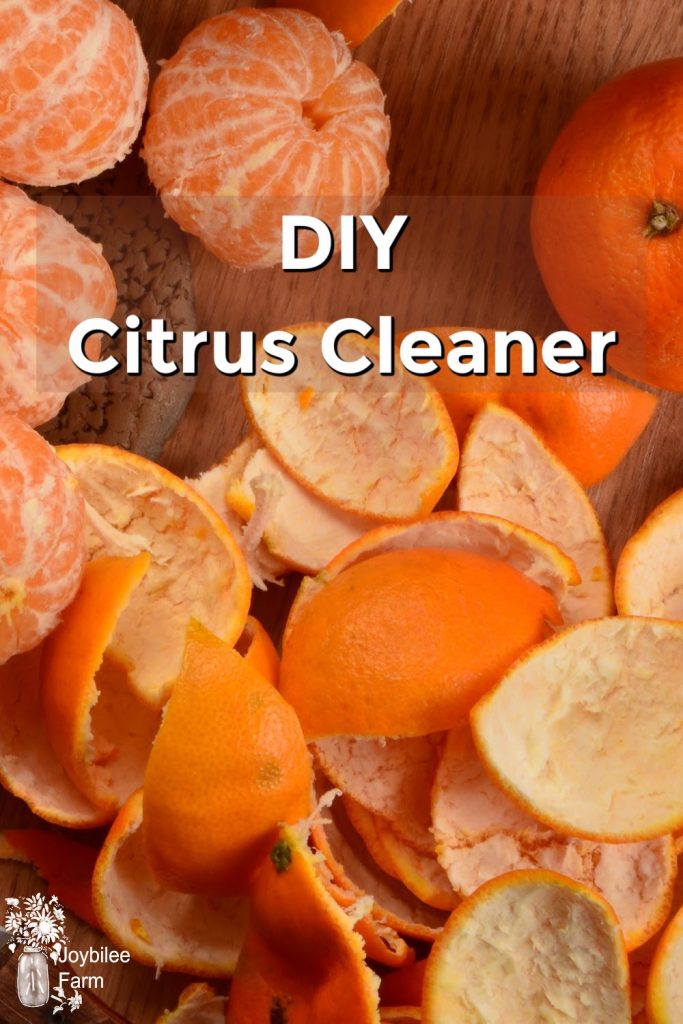
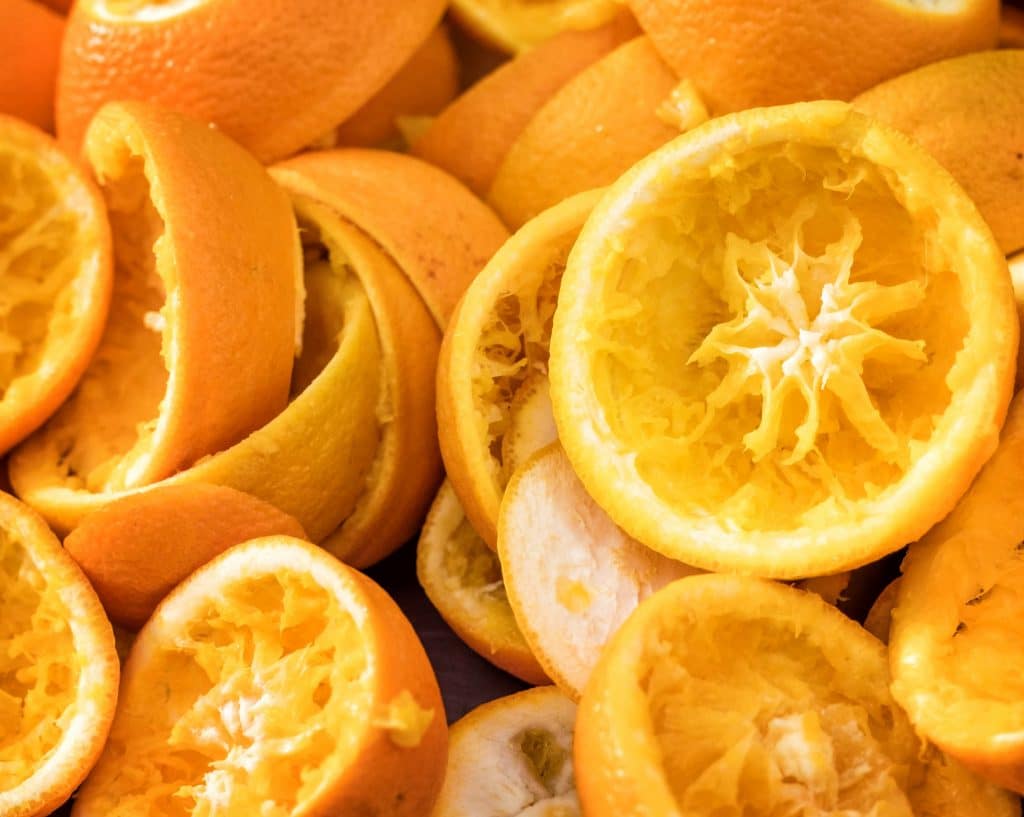
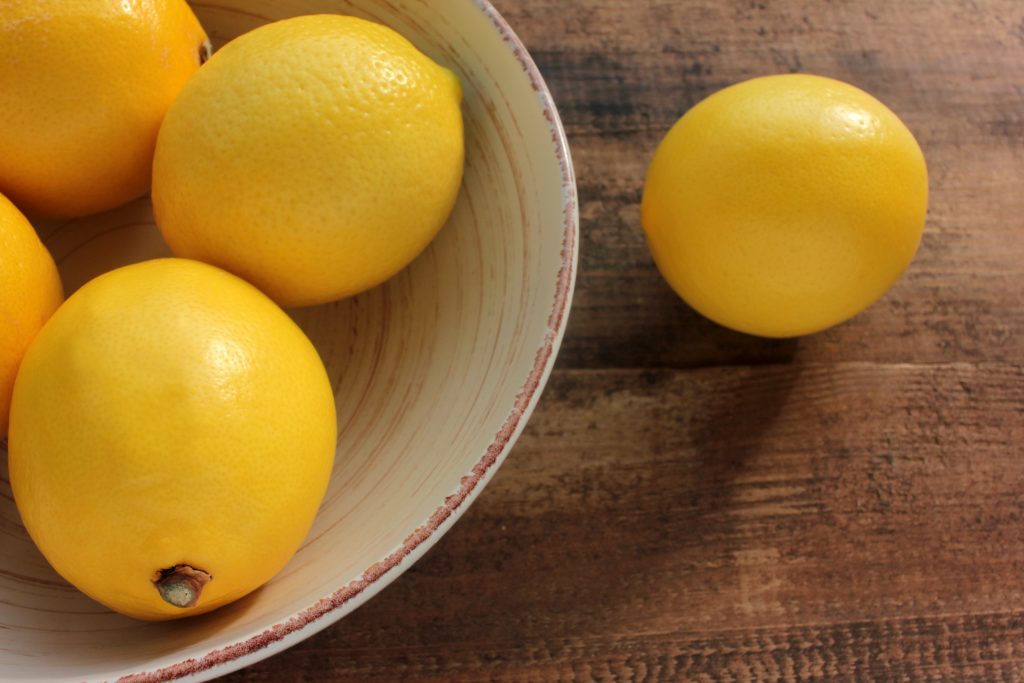



Like this? https://joybileefarm.com/diy-natural-bug-repellant-spray/
Have you tried any of the extracted oils in with compost tea as a insect repellant in the vegetable garden?
So why peel at all when I am juicing? I like the bitters that come with the whole fruit. I thought that orange and grapefruit peel/oil was not good for them stomach?
Than you for that really great article. I will be doing this. I guess I was on the right track when I added the peelsn to my hot tub water!
You said citrus oils are sensitve to light but put your jars in the window. Maybe wrap black paper around the jar first?